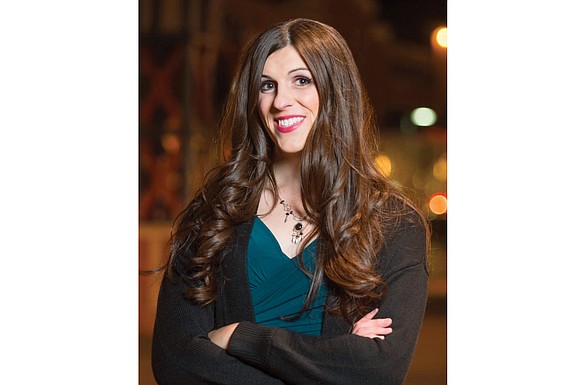House of Delegates to become more diverse
Jeremy M. Lazarus | 11/10/2017, 6:21 p.m.
The Virginia House of Delegates will be more diverse and more Democratic in January as a result of Tuesday’s elections.
Voters in districts across the state produced shocker after shocker as Democrats unexpectedly won at least 15 new seats in the 100-seat House to come close to controlling the General Assembly’s lower chamber.
“Flipping 15 seats from red to blue in Virginia is the biggest Democratic pickup since 1899,” Jessica Post, executive director of the Democratic Legislative Campaign Committee, wrote in a celebratory message.
Still, as it stands now, Republicans appear likely to hold a slender majority of 51 seats, based on current election results. That would leave the GOP in control of both the House and state Senate and able to block major Democratic initiatives such as expansion of health care or limits on gun sales.
Heading into Tuesday’s contests, Democrats were expecting to pick up six to eight seats, but instead found themselves riding a far larger than expected wave of support fueled by anger at President Trump.
Results on Wednesday show Democrats ousted at least 12 entrenched Republican incumbents, including Richmond Delegate Manoli Loupassi and Henrico Delegate John M. O’Bannon III, along with GOP House Majority Whip Jackson Miller of Northern Virginia.
The Democratic victories mean the House of Delegates will have its first Latina and Asian-American members, its first transgender woman and its first lesbian member.
The Virginia Legislative Black Caucus also will grow from 12 to 13 House members with Jennifer Foy’s victory in District 2 in Northern Virginia.
The bottom line: Republicans, who held a seemingly insurmountable 32-seat advantage before the election, find themselves barely hanging on.
Before the election, the split in the House of Delegates was 66 Republicans to 34 Democrats. Following the election, Democrats are expected to control at least 49 seats to 51 for the GOP.
Democratic Party officials said Wednesday they are expecting official recounts to be conducted in up to five House districts. A recount is certain for incumbent Newport News Republican David E. Yancey’s 12-vote victory over Democrat Shelly Simonds.
The election outcome is expected to shrink GOP influence over state spending priorities and sharply limit the Republicans’ ability to push tighter limits on abortions and abortion providers and impose new restrictions on voting — particularly with the Governor’s Mansion remaining under Democratic control with the new governor, Ralph S. Northam, who will wield a veto pen.
If Delegate Yancey ultimately loses in a recount, Democrats would have 50 of the 100 seats and be able to broker a power-sharing arrangement that would boost their influence.
Narrow losses in two other races prevented Democrats from taking control of the House outright.
Chesterfield Republican Delegate Roxann L. Robinson won by just 124 votes over Democratic challenger Larry Barnett in the 27th District, and African-American candidate Donte Tanner fell just 115 votes short of upsetting Republican incumbent Delegate Tim Hugo in the 40th District in Northern Virginia.
In the Richmond area, Democrats held their seats. Delegates Betsy B. Carr, D-69th, and Lamont Bagby, D-74th, easily defeated challengers to win new two-year terms.
Some area Republicans also were able to beat back challengers, including Hopewell Delegate Riley Ingram, R-62nd, who once again held off Democrat Sheila Bynum-Coleman, this time by about 800 votes.
Henrico Republican John J. McGuire III also defeated Democrat Melissa Dart to keep the 56th District in Republican hands.
But Democrat Dawn M. Adams’ big upset of Delegate Loupassi in the 68th District and Democrat Debra Rodman’s ouster of Dr. O’Bannon in the 73rd District were the talk of election night.
So was Henrico Democrat Schuyler VanValkenburg’s victory over Republican Edward Whitlock in the 72nd District to pick up a formerly Republican seat.
Among the most watched House races, 33-year-old Democrat Danica Roem, a transgender woman who ran a campaign focused on transportation issues, beat 26-year incumbent and social conservative Bob Marshall of Northern Virginia. The 73-year-old Republican described himself as the “chief homophobe” in the legislature. It was an earthquake for Prince William County, where Delegate Marshall has held sway for more than 25 years.
Democrats also ousted Republican House Majority Whip Jackson Miller of Manassas, replacing him with Lee Carter, a former Marine and member of the Democratic Socialists who led a rendition of “Solidarity Forever,” the workers’ anthem, at his victory party.
Mr. Carter made his anti-Trump views plain in February when he marched on the White House chanting, “Hey hey, ho ho, Donald Trump has got to go.”
Also elected was Latina candidate Hala Ayala, former president of her local chapter of the National Organization for Women.
She defeated Republican incumbent Rich Anderson in Prince William County, who had sent out controversial mailers accusing her of wanting to give rights to “thugs, violent criminals, gang members and child predators.”
Ms. Ayala and Democrat Elizabeth Guzman, who defeated GOP incumbent Delegate Scott Lingamfelter in the 31st District, will be the first two Latinas in the Virginia House of Delegates.
Democrat Chris Hurst, whose reporter girlfriend Alison Parker was slain on live television in Roanoke and who ran on a gun control platform, unseated incumbent Republican Joseph Yost in the Blacksburg area.
House Minority Leader David Toscano said that Democrats caught the wave because they had candidates challenging in districts that were supposedly reliably Republican.
Incoming GOP House Speaker Kirk Cox of Chesterfield vowed that despite a shrunken majority if it holds, Republicans would continue to “hew to conservative principles,” hinting that Gov.-elect Northam will have no easier task than outgoing Democratic Gov. Terry McAuliffe in ushering in major change.
In 2015, only 29 of the state’s House of Delegates elections were head-to-head Democrat versus Republican contests. Most of the 100 seats were not contested in elections two years ago.
Tuesday’s House elections were different, with 88 of the races featuring head-to-head contests.







